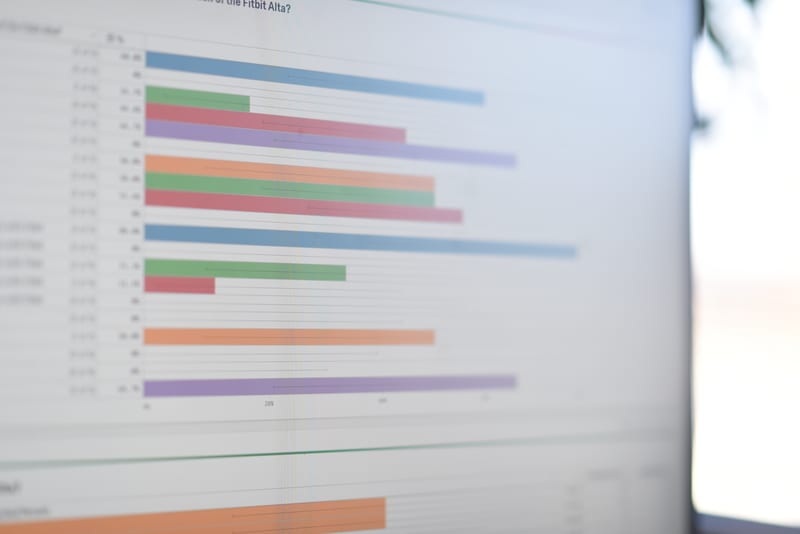The successful functioning of any lab comes down to the people who work in it, and central to this is the lab manager. While there are a range of tasks that this job might encompass, the position usually sits at the intersection of lab organisation, experimental administration, and data analysis.
The lab manager creates the conditions necessary for a lab to operate seamlessly, making sure that the experimental process is as smooth as possible. This requires more than a bit of know-how – committed, hard-work with the right tools is essential for success.
Below, we’ve put together the 5 most important things each lab manager needs to know to create a successful lab environment.
Of course, the functioning of each lab and each research area is different, but these should give you a starting point for creating a prosperous and well-functioning lab.
Experiment setup / organisation

One of the most valuable (yet underappreciated) skills for a lab manager is the ability to orchestrate and organise a variety of people, tasks, and information. This could encompass anything from recruiting participants for experiments, equipment logistics, to scheduling the use of rooms and work areas.
By arranging the necessary steps required to begin experiments, the lab manager can ensure that there are as few hiccups in the research process as possible. There are several ways in which to ensure this is carried out smoothly.
For getting hold of participants, it helps to have a set protocol for advertising to and screening people, or maybe even a set contact who specializes in recruiting participants.
To ensure the equipment that is required for an experiment is in the right place at the right time, keeping a list with dates when the material is in use can be enough to keep things running smoothly. The same can be applied to the scheduling of facilities, it needn’t be more complicated than that.
Tips for experiment setup / organisation
Recruiting participants – if you’re at a university, advertising in the area through flyers or mailing lists may be enough to gather participants. If you want to investigate the responses of people who don’t belong to a university environment, then advertising further afield may be required (such as online advertising Facebook, LinkedIn, or FindParticipants). If you’re just looking for people to fill out a survey, then services like Amazon Mechanical Turk might be the best match for you.
Logistics and scheduling – simply having a calendar is a good start. Using a service like Google Calendar that your entire team uses can help you get an overview of who is where, and who is doing what. Adding apps like Trello, Flow, or Asana can help your team stay organised, and make sure things run according to plan. Sona Systems is an example of software that can help you manage participants and the running of experiments.
Summary of tools:
Advertise for / find participants:
- FindParticipants
- Amazon Mechanical Turk
Logistics / scheduling:
- Trello
- Flow
- Asana
- Sona Systems
Administration

A central task for organising a lab is to keep track of the resources. This might not only be equipment, but also the finances, and how the finances are allocated. Ensuring that the lab keeps within a budget, and knowing how resources can be allocated goes a long way to creating a productive and efficient work environment.
This might involve a fair amount of accounting skills, which could be outside of the usual academic experience, but is a valuable skill to have.
An unexpected, yet still commonly requested skill of lab managers is the ability to setup and / or run lab websites. Creating or maintaining an online presence to show off the lab’s work, and to generate outside interest can be crucial in attracting talented researchers and building credibility.
Tips for administration
Accounting and inventory – managing the lab’s finances is most likely to be keeping a budget, so accounting software shouldn’t really be needed. Simple spreadsheet software (MS Excel, or Google Sheets) should be enough. The same concepts apply to keeping inventory, so the same approach can be applied.
Website building / maintenance – if you’re building new webpages or adapting existing ones for your lab within an existing framework for a university, it’s likely that a system is already in place to help you safely roll this out. These systems can vary, so talk to the IT department to find out how to do this. If you’re building new pages that aren’t part of a university website, then tools like WordPress, Wix, or Squarespace can help.
Summary of tools:
Accounting:
- MS Excel
- Google Sheets
Website building:
- WordPress
- Wix
- Squarespace
Administer experiments

Lab manager work often requires not only setting up conditions for the experiments but can also involve carrying them out. Being able to independently carry out such work can take a load off other researchers within the department, allowing them to focus on analysis or the writing up of papers.
What kind of research you carry out will determine what tools you need of course, but also the level of expertise within setting up and analyzing experimental data will have an impact. Having a solution that is implementable and accessible to everyone in the lab will help increase the productivity and effectiveness of the team.
Tips for administering experiments
Experiment setup – carrying out research by presenting stimuli while recording a range of measures, including from EEG, eye tracking, GSR, or facial expression analysis can be easily handled by iMotions. If you’re looking just to complete surveys, then Qualtrics could be the choice for you (this can also be simply integrated with iMotions too). Other options that require a certain level of technical knowledge include ePrime, or jsPsych.
Summary of tools:
- iMotions
- Qualtrics
- ePrime
- jsPsych
Writing applications

Running a lab requires a great deal of paperwork to be filled out. Being able to contribute (either in whole or part) to the completion of funding applications can provide a boost to the success of a lab.
In addition to funding applications, other paperwork such as those needed for an experiment’s ethics approval, is essential to completing research. Depending on the nature of the research, and the running of the organisation, other paperwork may also be required – which all goes to say, writing skills will be required.
Tips for writing applications
There aren’t really any shortcuts that you can’t take when it comes to writing effective funding applications, although our guide offers some great advice for getting started. The best recommendation we can give is to allot the required time to properly write a research funding application. Furthermore, talk to everyone – get a clear idea of what the research is about, where the application is going, and ask previously successful applicants how they constructed their request.
Summary of tools:
- Our own pocket guide
- Time management!
Statistics

The lab manager might not only be responsible for organizing and administering experiments, but also for analyzing the data (or at least preparing it for further analysis). This could require an understanding of statistics, and also the ability to use statistical software.
The lab manager is unlikely to be alone in drawing conclusions from data, but could independently work on cleaning and preparing the data for further analysis. Being able to create a smooth process that leads from experiment completion to statistical analysis can help the team complete work and publish faster.
Tips for statistical analysis
Data analysis – While some labs might just use Excel to analyse their data, research groups often want to look further. This could require using SPSS, SAS, or R, but for more sophisticated analyses it could even require MatLab or custom-built software.
Summary of tools:
- MS Excel
- SPSS
- SAS
- R
- Matlab
I hope you’ve enjoyed reading about the core aspects of being a successful lab manager, and feel inspired to include some of these approaches in your work (even if you’re not a lab manager!). To get a better understanding of running human behavior experiments, download our free guide to experimental design below.












